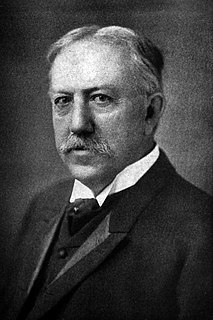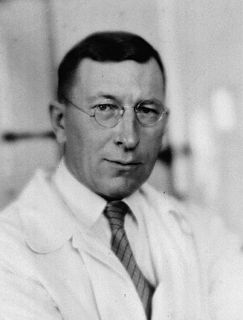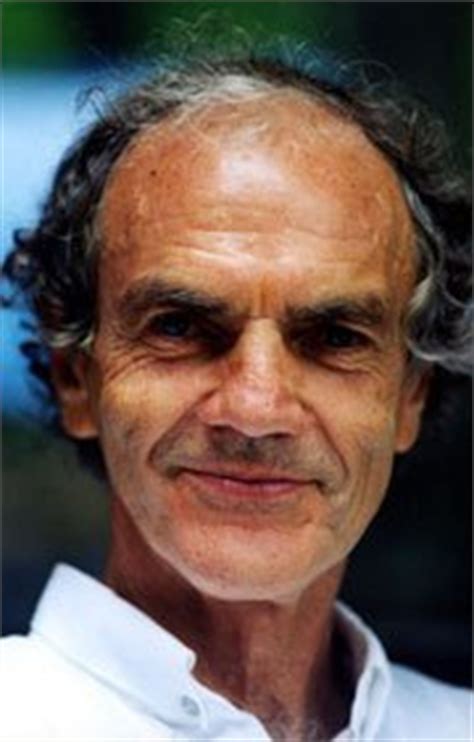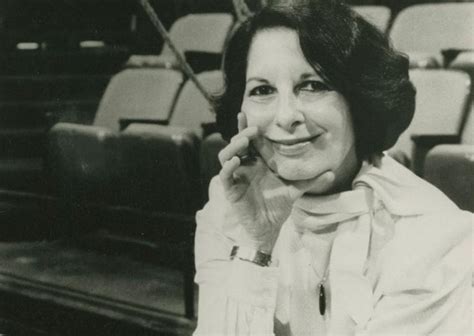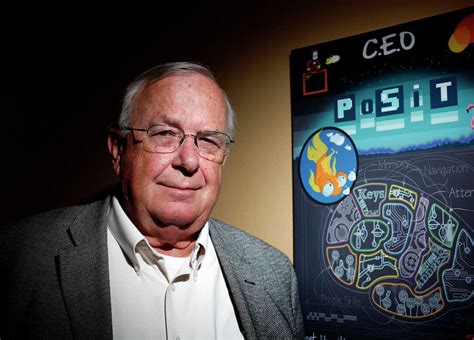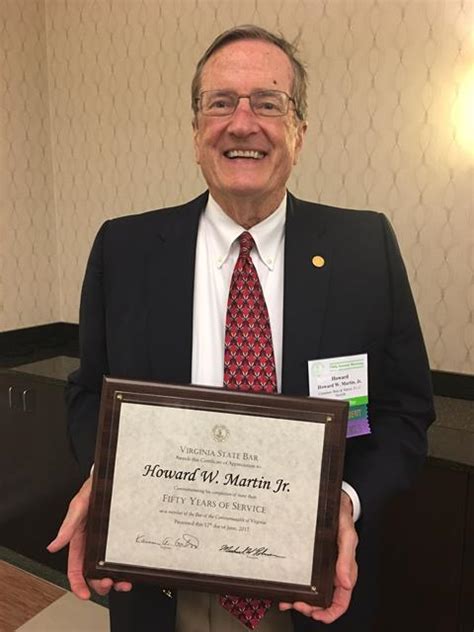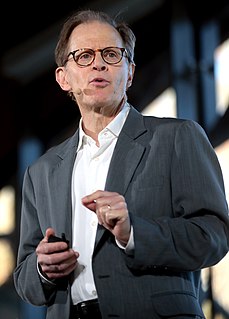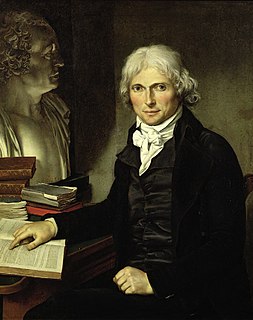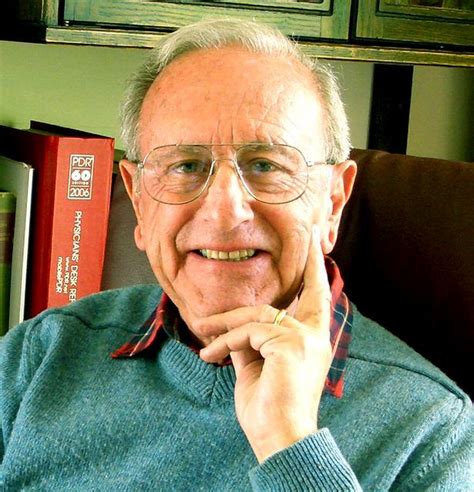Top 162 Physiological Quotes & Sayings - Page 3
Explore popular Physiological quotes.
Last updated on April 19, 2025.
Calvin: Isn't it strange that evolution would give us a sense of humor? When you think about it, it's weird that we have a physiological response to absurdity. We laugh at nonsense. We like it. We think it's funny. Don't you think it's odd that we appreciate absurdity? Why would we develop that way? How does it benefit us? Hobbes: I suppose if we couldn't laugh at things that don't make sense, we couldn't react to a lot of life.
The physiological combustion theory takes as its starting point the fundamental principle that the amount of heat that arises from the combustion of a given substance is an invariable quantity-i.e., one independent of the circumstances accompanying the combustion-from which it is more specifically concluded that the chemical effect of the combustible materials undergoes no quantitative change even as a result of the vital process, or that the living organism, with all its mysteries and marvels, is not capable of generating heat out of nothing.
The psychological and physiological mechanism of love is so complex that at a certain period in his life a young man must concentrate all his energy on coming to grips with it, and in this way he misses the actual content of the love: the woman he loves. (In this he is much like a young violinist who cannot concentrate on the emotional content of a piece until the technique required to play it comes automatically.)
I'm no shrinking violet. I played hockey until half my teeth were knocked down my throat. And I'm extremely competitive on a tennis court. . . But that experience at the slaughterhouse overwhelmed me. When I walked out of there, I knew I would never again harm an animal! I knew all the physiological, economic, and ecological arguments supporting vegetarianism, but it was firsthand experience of man's cruelty to animals that laid the real groundwork for my commitment to vegetarianism.
The physiological law of Transfer of Energy is the basis of human success and happiness. There is no action without expenditure of energy, and if energy be not expended the power to generate it is lost. This law shows itself in a thousand ways in the life of man. The arm which is not used becomes palsied. The wealth which comes by chance weakens and destroys. The good which is unused turns to evil. The charity which asks no effort cannot relieve the misery she creates.
It was an extremely trying time for me. Best was still intimate with MacLeod and the others about the laboratory. I was out of the picture entirely. MacLeod had taken over the whole physiological investigation. Collip had taken over the biochemistry. Professor Graham and Dr. Campbell had taken over the whole clinical aspect of the investigation.
The Western world generally has lost the concept of man as a creature made to the image and likeness of God, and reduced him either to a component part of the universe, to an economic animal or to a "physiological bag filled with psychological libido." Once man became materialized and atomized in Western thinking, it was only natural for a totalitarianism to arise to gather up the fragments into a new totality and substitute the collective man for the individual man who was isolated from all social responsibilities.
Perhaps the most significant thing a person can know about himself is to understand his own system of values. Almost every thing we do is a reflection of our own personal value system. What do we mean by values? Our values are what we want out of life. No one is born with a set of values. Except for our basic physiological needs such as air, water, and food, most of our values are acquired after birth.
If you want to understand what it means to be afraid, what fear as experienced by human beings is, then your focus must shift. No longer will you be satisfied with mechanical, physiological, neurological accounts. For this inquiry will require you to observe closely what human beings feel, sing, think, write and say to one another.
Trying to describe the process of becoming an alcoholic is like trying to describe air. It's too big and mysterious and pervasive to be defined. Alcohol is everywhere in your life, omnipresent, and you're both aware and unaware of it almost all the time, all you know is you'd die without it, and there is no simple reason why this happens, no single moment, no physiological event that pushes a heavy drinker across a concrete line into alcoholism. It's a slow, gradual, insidious, elusive becoming.
My view on well-being and fulfillment comes from Maslow and positive psychology, and that is that you're satisfying three sets of needs. First need is physiological and safety needs: Got to satisfy those first. And the second is you got to satisfy your community needs because we're social animals, and if we don't have that, we're empty and we don't have people to share knowledge and bounce things off of, and challenge ourselves. And then the third is the idea is to find a calling.
When the first mechanical clocks were invented, marking off time in crisp, regular intervals, it must have surprised people to discover that time flowed outside their own mental and physiological processes. Body time flows at its own variable rate, oblivious to the most precise hydrogen master clocks in the laboratory. In fact, the human body contains its own exquisite time-pieces, all with their separate rhythms. There are the alpha waves in the brain; another clock is the heart. And all the while tick the mysterious, ruthless clocks that regulate aging.
The steady states of the fluid matrix of the body are commonly preserved by physiological reactions, i.e., by more complicated processes than are involved in simple physico-chemical equilibria. Special designations, therefore, are appropriate:—“homeostasis” to designate stability of the organism; “homeostatic conditions,” to indicate details of the stability; and “homeostatic reactions,” to signify means for maintaining stability.
The objective psychologist, hoping to get at the physiological side of behavior, is apt to plunge immediately into neurology trying to correlate brain activity with modes of experience ... The result in many cases only accentuates the gap between the total experience as studied by the psychologist and neural activity as analyzed by the neurologist.
In my experience with EEG Biofeedback and ADD, many people are able to improve their reading skills and decrease their need for medication. Also, EEG biofeedback has helped to decrease impulsivity and aggressiveness. It is a powerful tool, in part, because the patient becomes part of the treatment process by taking more control over his own physiological processes.
Art is personal, originating from dreams, ideas, neuroses; art is shared, harkening back to the humans around the fire; art imbues pleasure and power by enabling people to know reality...Art is a necessity because it is a way of knowing...Is the need for truth physiological? Art exists out of time...images may be different bu there is always a repetition- a thread.
She lost much of her appetite. At night, an invisible hand kept shaking her awake every few hours. Grief was physiological, a disturbance of the blood. Sometimes a whole minute would pass in nameless dread - the bedside clock ticking, the blue moonlight coating the window like glue - before she`d remember the brutal fact that had caused it.
The patterns of activity of neurons in sensory areas can be altered by patterns of attention. Experience coupled with attention leads to physical changes in the structure and future functioning of the nervous system. This leaves us with a clear physiological fact…moment by moment we choose and sculpt how our ever-changing minds will work. We choose who we will be in the next moment in a very real sense, and these choices are left embossed in physical form in our material selves.
When we consciously choose a core heart feeling over a negative feeling, we effectively intercept the physiological stress response that drains and damages our systems and allow the body's natural regenerative capacities to work for us. Instead of being taxed and depleted, our mental and emotional systems are renewed. As a consequence, they are better able to ward off future "energy eaters" like stress, anxiety and anger before they take hold.
As human beings, we all have reasons for our behavior. There may be people who have certain physiological issues that dictate why they make certain choices. On the whole, though, I think we're dictated by our structure, our past, our environment, our culture. So once you understand the patterns that shape a person, how can you not find sympathy?
I like something about George W. Bush. A lot. After spending more than a decade having almost physiological-chemical reactions anytime I saw him, getting the heebie-jeebies whenever he spoke - after being sure from the start that he was a Gremlin on the wing of America - I really like the paintings of George W. Bush.
The last great unknown, in terms of physiological training, is the optimum length of a piece. Is three minutes enough? Is ten minutes too much? No one knows. Perhaps someday the question will be answered-we'll find out that thirteen minutes is the perfect length for a training piece when preparing for a 2000 meter race. Until then, coaches will continue exploring the whole scale, up and down, from thirty seconds to sixty minutes and more, in hopes of capturing the optimum time.
I have a really good idea of who my readers are and always write with a sensitivity to my audience. I use the F word when necessary, but there are words I won't use, mainly because I don't like them. I don't write about body parts when I write about sex. It's not about the physiological, it's more important for teens to read about the emotional aspects. I do think there are times when self-censorship is important.
Our physiological constitution is obviously a product of Darwinian processes, insofar as you buy the evolutional theory as a generative, as an account of the mechanism that generated us. Our physiology evolved, our behaviors evolved, and our accounts of those behaviors, both successful and unsuccessful, evolved.
Recent studies of mindfulness practices reveal that they can result in profound improvements in a range of physiological, mental, and interpersonal domains in our lives. Cardiac, endocrine, and immune functions are improved with mindfulness practices. Empathy, compassion, and interpersonal sensivity seem to be improved. People who come to develop the capacity to pay attention in the present moment without grasping on to their inevitable judgments also develop a deeper sense of well-being and what can be considered a form of mental coherence.
It's amazing how much of a bodily experience being scared is. It doesn't take very long of hyperventilating to feel like you're going to pass out. It's one of those things where being scared is more of a physiological response that you can pretty easily manipulate. So in those types of scenes, it just takes a lot of energy.
When I say that children should be told about sex, I do not mean that they should be told only the bare physiological facts; they should be told whatever they wish to know. There should be no attempt to represent adults as more virtuous than they are, or sex as occurring only in marriage. There is no excuse for deceiving children. And when, as must happen in conventional families, they find that their parents have lied, they lose confidence in them, and feel justified in lying to them.
Medicine is an incoherent assemblage of incoherent ideas, and is, perhaps, of all the physiological Sciences, that which best shows the caprice of the human mind. What did I say! It is not a Science for a methodical mind. It is a shapeless assemblage of inaccurate ideas, of observations often puerile, of deceptive remedies, and of formulae as fantastically conceived as they are tediously arranged.
I established the opposite view, that this history of the embryo (ontogeny) must be completed by a second, equally valuable, and closely connected branch of thought - the history of race (phylogeny). Both of these branches of evolutionary science, are, in my opinion, in the closest causal connection; this arises from the reciprocal action of the laws of heredity and adaptation... 'ontogenesis is a brief and rapid recapitulation of phylogenesis, determined by the physiological functions of heredity (generation) and adaptation (maintenance).
Psychoanalytic categories such as "neurosis", "psychosis", "mania", and "fixation" have become part of our everyday psychological vocabulary and we now routinely interpret states of anxiety, excitement, or depression in terms of physiological factors involving levels of serotonin, adrenalin, or blood sugar. To say that the characterization of thinking has a normative function that is irreducible to neurophysiological processing is not to say that our extant classification of the forms of thinking is incorrigible.
Friedrich Hayek .. seems to have been the first to postulate what is the core of this paper, namely, the idea of memory and perception represented in widely distributed networks of interconnected cortical cells. Subsequently this idea has received theoretical support, however tangential, from the fields of cognitive psychology, connectionism and artificial intelligence. Empirically, it is well supported by the physiological study and neuroimaging of working memory.
prepare a little hot tea or broth and it should be brought to them . . . without their being asked if they would care for it. Those who are in great distress want no food, but if it is handed to them, they will mechanically take it ' ... There was something arresting about the matter-of-fact wisdom here, the instinctive understanding of the physiological disruptions... I will not forget the instinctive wisdom of the friend who, every day for those first few weeks, brought me a quart container of scallion-and-ginger congee from Chinatown. Congee I could eat. Congee was all I could eat.
Clare had studied the curves of those lips so many times that he could reproduce them mentally with ease: and now, as they again confronted him, clothed with colour and life, they sent an aura over his flesh, a breeze through his nerves, which wellnigh produced a qualm; and actually produced, by some mysterious physiological process, a prosaic sneeze.
To plead the organic causation of a religious state of mind, then, in refutation of its claim to possess superior spiritual value, is quite illogical and arbitrary, unless one have already worked out in advance some psycho-physical theory connecting spiritual values in general with determinate sorts of physiological change. Otherwise none of our thoughts and feelings, not even our scientific doctrines, not even our dis -beliefs, could retain any value as revelations of the truth, for every one of them without exception flows from the state of their possessor's body at the time.





